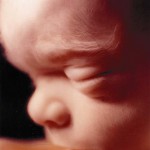The first of George R.R. Martin’s Game of Thrones books opens with a beheading. Lord Eddard Stark, Lord of Winterfell in the North of the Seven Kingdoms, insists on executing criminals and deserters himself – telling his son Bran that a ruler should never appoint an executioner. He should never allow killing to become something invisible, something that can be done with a word but never confronted.
A few years ago, The Thirsty Gargoyle wrote a blog post responding to Steven Pinker’s claim in his book The Better Angels of Our Nature that our species was over time becoming less violent.
Not so, said the Gargoyle. We have merely gotten better at taking our violence out of the public eye. Ours is not an age of peace. It is an age of invisibility.
I think of this when I look at the tragic case that has just come to light in Ireland. A young foreign woman became pregnant as the result of being raped, felt suicidal and sought an abortion.
Our abortion law adopted last year requires two psychiatrists and an obstetrician to sign off on the procedure when a mother has suicidal ideation. They are, supposedly, constitutionally obliged to do what they can to preserve the life of both mother and child – in practice this means that if a child is viable or on the fringes of viability they must be delivered prematurely rather than aborted.
For some reason, there seems to have been a long delay between her initial request for an abortion and her being admitted to hospital. It’s not clear whether this delay was caused by the Irish Family Planning Association (a pro-choice charity) or by a doctor or some agent of the State. She was unable for financial reasons to travel to England for an abortion, and ultimately a termination of pregancy was approved.
But due to the advanced stage of her pregnancy (around 25 weeks), the child was delivered, survived, and is now in an incubator in a Dublin hospital. Their chances of survival are good. Of avoiding disability, less so.
With abortion, of course, we almost never have to look at those we condemn to death. Abortion survivors are few in number, the ones who know they are abortion survivors are fewer still. Few enough to be largely ignored.
But Ireland is small. If the child in this particular case survives, stays in this country (due to a referendum passed in 2007 (very wrongly, in my view), the child will only be an Irish citizen if the rapist is Irish), and is not so disabled as to be unable to read, listen, and understand, they will one day come across the words being said and written about them right now.
He or she will hear Dr Sam Coulter-Smith, Master of one of Ireland’s largest maternity hospitals, call for a referendum to allow for abortions in cases of rape, and say that if such procedures were legal “we mightn’t even be having this conversation.”
He or she will read the Irish Times editorial calling for the repeal of the constitutional amendment that allowed him or her to live.
Social media is abuzz with denunciations of Ireland and our savage, uncompassionate society. Why the delay? Why wasn’t this woman given an abortion earlier rather than put through this ordeal?
We don’t know that yet. But what we do know is that if she had, her child, who is now alive, would be dead. This child, who we can no longer refuse to see, may one day do their own seeing – see the tweets, Facebook posts and blogs about him or her.
So I ask you, if you are pro-choice: write everything you write on this issue like it was a letter to this child. If you can, go further – every time you are about to write a word on this issue, imagine yourself looking at this child at five or ten years of age. Imagine looking at them when they turn twenty or thirty.
Imagine looking them straight in the eye and saying “In the compassionate society I’d prefer to see, you would be dead. You would have been aborted earlier – quietly, invisibly – and you would not be here. Maybe you would be a loss, but you and those like you are the loss I will accept to ensure that no woman has to carry a pregnancy to term after being raped. You and children like you will have less of a right to life in the womb than those whose fathers are not violent criminals. Maybe that isn’t fair. But then, neither is life.”
I invite you to do it. Universalize your maxims. Live by the morality you have chosen for yourself. And see if you can stomach it.
That goes for pro-lifers too.
Because, after all, it is not just the government that has failed this young woman. We who call ourselves pro-life have failed her too. By failing to do justice to the dignity our immigrants and asylum seekers, by failing to vote on the care of the most vulnerable rather than the state of our next paycheck, by refusing to demand more from our public representatives, by allowing a culture of shame and secrecy to surround victims of rape, by failing to ensure that a circle of support and protection surrounds every pregnant woman regardless of “socioeconomic status”, by failing to get out there and help women like this ourselves, we have all in some way done our part in allowing this woman to become a victim of a throwaway culture.
What we owe her now is compassion. Let’s not ignore the fact that she was raped (rape victims are among the most invisible in Irish society). Let’s not try to pretend she wasn’t suicidal. Let’s always remember that carrying a pregnancy to term after being raped will be – for most women if not all – a trial like none most of us have ever faced. Let us never allow her to become invisible, a case rather than a person.
That doesn’t mean we have to stop saying that abortion is never the best answer, that women always deserve better. That doesn’t mean we have to ignore the fact that suicidal intent never, ever has just one cause or one solution. That doesn’t mean that we have to withdraw the protection of the law from children conceived through rape.
But it does mean that we have to look this woman in the eye and acknowledge that there are some situations where there are no easy solutions, and sometimes the best we can do is choose the least bad of a series of horrible options.
And then we must do everything in our power to help this woman and those like her to find what healing they can.












